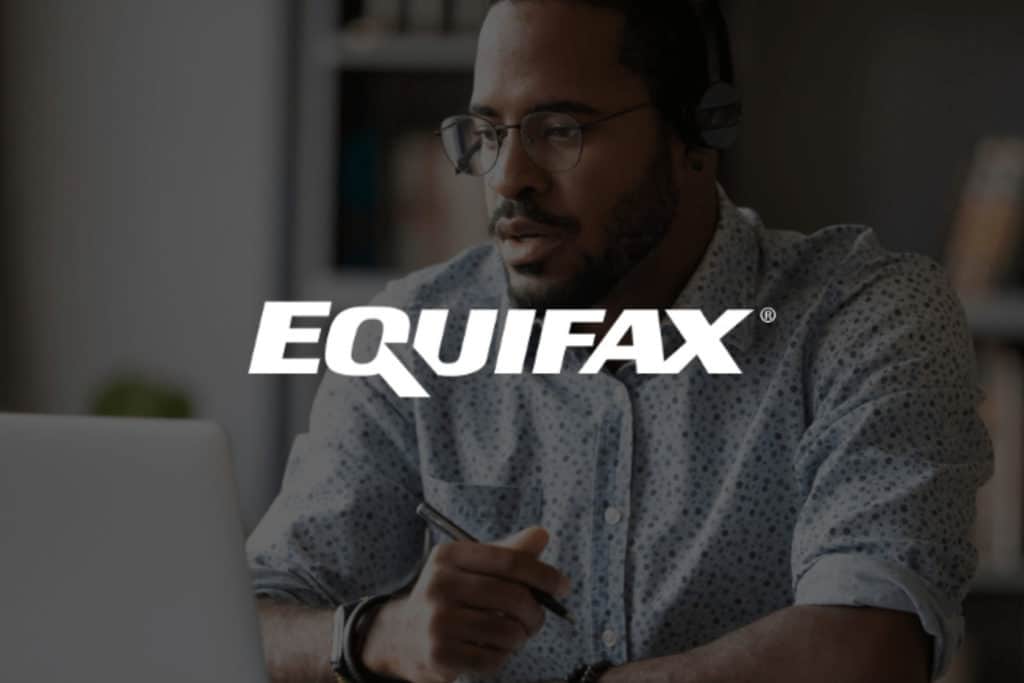🎉 Tillful is now part of Nav! Get your business credit score at Nav
When you apply for small business credit, the lender or credit provider may turn to Equifax, Experian, or Dun & Bradstreet (D&B) to assess your company’s creditworthiness. Being so, it’s a good idea to know where you stand with all three so you have a better chance at the business credit card or loan you’re after. In this article, we’ll take a closer look at the Equifax business credit report, what it includes, and how to check yours.
Equifax Business Credit Report Scores
You may be familiar with Equifax and its personal credit scores but business credit scores work quite a bit differently. Here are the three score types that’ll be included on your Equifax business credit report:
Credit Risk Score
The Equifax Business Credit Risk Score can range from 101 to 992, with 992 being the best score. It shows the delinquency risk of your business or, in other words, how likely you are to make late payments.
The key determining score factors include:
- How long it has been since your business’s oldest financial account was opened
- Your available credit limits on revolving tradelines
- The number of employees you have
- Your payment history
- The presence of delinquencies or charge-offs
Payment Index Score
The Equifax Payment Index Score ranges from 1 to 100, with 100 being the best score. This score will tell lenders how good your business is at paying its creditors on time as well as the median score in your industry.
Keep in mind, Equifax looks not only at if payments are late but how late they are. For example:
- A score of 90+ means payments are made as agreed
- A score of 80 to 89 means payments are up to 30 days past due
- A score of 1 to 19 means payments are over 120 days past due
Business Failure Score
Lastly, the Equifax Business Failure Score predicts the likelihood that your company will go out of business. The score can range from 1000 to 1880, with 1880 being the best score. It’s based on factors such as:
- Your worst payment status on all trades in the past two years
- How long it has been since you opened a financial account
- Your credit utilization ratio
Like a FICO personal credit score, business credit scores are based on your credit history and show lenders how risky it is to lend to you. By understanding and improving them, you can better the odds of getting approved by business lenders and credit providers.
What else is on the Equifax business credit report?
Along with the above credit scores, the Equifax business credit report includes other information, such as:
- Credit Utilization: How much credit is available to your company, how much you’ve used, and your current credit utilization ratio.
- Days Beyond Terms: How long, on average, you’ve been past due on invoices to your creditors.
- Inquiries: Any recent credit inquiries that have been recorded for your business.
- Bureau Messages: Notes from the credit bureau about miscellaneous topics related to your business such as having multiple locations.
- Bureau Summary Data: An overview of all the data the credit bureau has about your business such as the number of accounts you have, how long your credit has been active, any charge-offs, any delinquent accounts, and any credit inquiries you’ve allowed.
- Public Records: Any liens, judgments, or bankruptcies on file, the dollar amount associated with them, and the date they were filed.
- Additional Information: Owner names, guarantor names, alternate company names, and DBAs.
If you’d like to see an example, take a look at this sample Equifax business credit report.
How to Get Your Equifax Business Credit Report
Interested in getting your Equifax business credit report? You can request it directly from the company. However, it is a manual process. You’ll need to reach out to an Equifax representative and make the request.
In a statement we received from Equifax, the company said that credit reports are only available to business owners who are in the process of applying for credit and need the report to review and resolve any inaccuracies. To get the report, you’ll need to prove that you are an authorized representative of the company and you’re requesting the report in conjunction with a business credit application.
It’s also important to note that Equifax will only have a business credit report for your company if you have tradelines established. If you have yet to get any credit in your business’s name, you likely won’t have an Equifax report on file. Further, the company doesn’t currently offer business credit monitoring services to help you track your Equifax business credit report activity.
How Much Does an Equifax Business Credit Report Cost?
There is currently no cost to request your company’s Equifax report.
Can I Request Another Company’s Equifax Business Credit Report?
Only an authorized representative of a business can request its own Equifax business credit report when it’s applying for credit accounts such as business loans, lines of credit, or credit cards. If you need to assess the credit risk of commercial prospects at large, you can look into Equifax’s BusinessConnect for Credit offer.
How to Dispute Errors on Your Equifax Business Credit Report
If you find errors on your Equifax business credit report, contact an Equifax representative along with the company that provided the information to Equifax.
Last Word on Equifax Business Credit Scores
Your Equifax business credit report can play an important role in the credit decisions of business lenders and credit providers. Additionally, they may check your business credit information with Experian and D&B. It’s not a bad idea to know where you stand with all three business credit reporting agencies as you work on building business credit to ensure you have all your bases covered. The better your scores, the more options you’ll have and the more competitive rates and terms you’ll be able to receive.
If you’d like, you can also learn more about:


